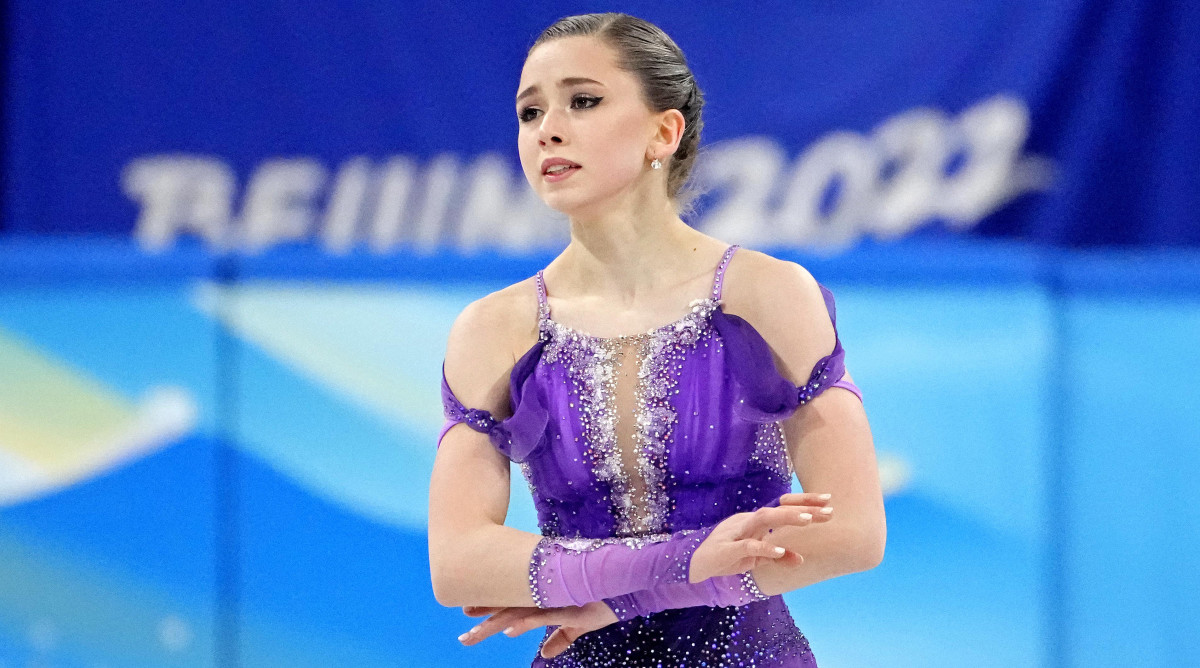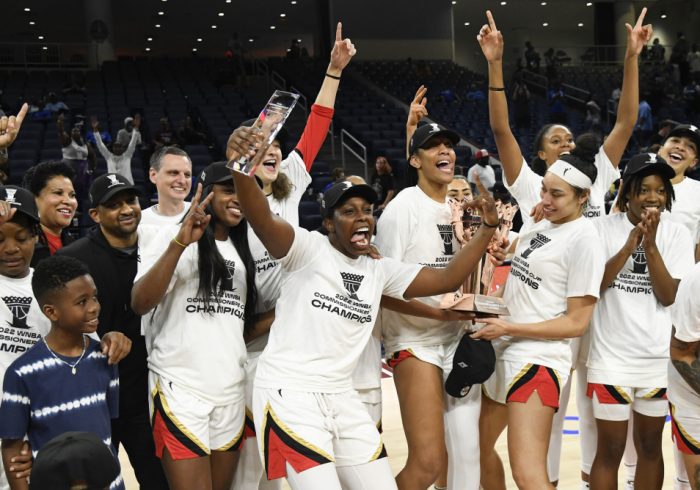Russian officials announced Friday they have largely chosen not to discipline Kamila Valieva, the 16-year-old figure skater whose doping case overshadowed the competition at the Beijing Olympics a year ago. They explained she had indeed committed a violation but “bore no fault or negligence” for it, so they disqualified her results from the day of the sample collection—her final event of the 2022 Russian Championships—but otherwise imposed no sanction.
The decision, if upheld, would allow the Russian Olympic Committee to keep its gold medal in the Olympic team competition. The World Anti-Doping Agency (WADA) said in a statement that it is “concerned by the finding of ‘no fault or negligence’ and will not hesitate to exercise its right of appeal to the Court of Arbitration for Sport, as appropriate.” In November, WADA asked CAS to levy a four-year ban on Valieva. That case is still pending.
If CAS does punish Valieva, Russia could be stripped of its Olympic team gold medal, which would go to the United States. Japan, which finished third, and Canada, which finished fourth, would also move up in the standings.
Valieva, perhaps the most talented skater ever, was 15 last year when news broke partway through the Olympics that she was under investigation for a positive drug test. She had just led the Russian Olympic Committee—competing under that banner rather than as Russia as a penalty for a multiyear state-sponsored doping scheme—to victory in the team event, landing the first quadruple jumps by a woman in Olympic history. But the medal ceremony was abruptly postponed when it emerged that Valieva had tested positive Dec. 25 for trimetazidine, a heart medication that WADA has banned because it helps the body make energy more efficiently. For reasons it has never fully explained, the Russian Anti-Doping Agency (RUSADA) had not tested the sample until Feb. 7, the final day of the team competition.
RUSADA suspended Valieva, then unsuspended her, referencing her age, which made her what doping officials call a “protected person” and meant she was not responsible for her actions. The International Olympic Committee, the United States Anti-Doping Agency and WADA appealed the decision; CAS allowed her to compete, saying to bar her would cause “irreparable harm.”
Valieva testified that she had accidentally taken some of her grandfather’s heart medication, an explanation that did not withstand scrutiny: She reportedly also had two other, legal heart medications in her system, which could not have been accidental, as she listed them on a doping control form. That combination is unusual in a teenager.
Ultimately Valieva, who had been heavily favored to win gold in the individual competition, fell twice in her free skate and finished fourth. She sobbed as the results were announced and did not take questions from the media.



